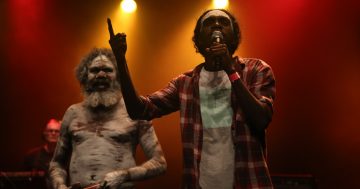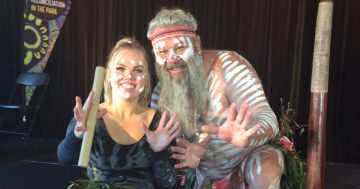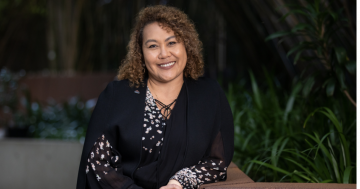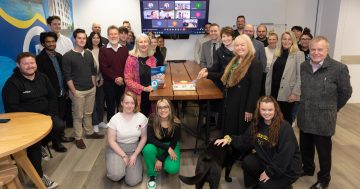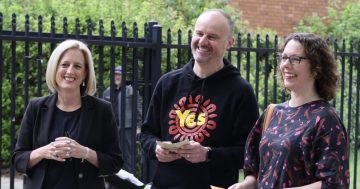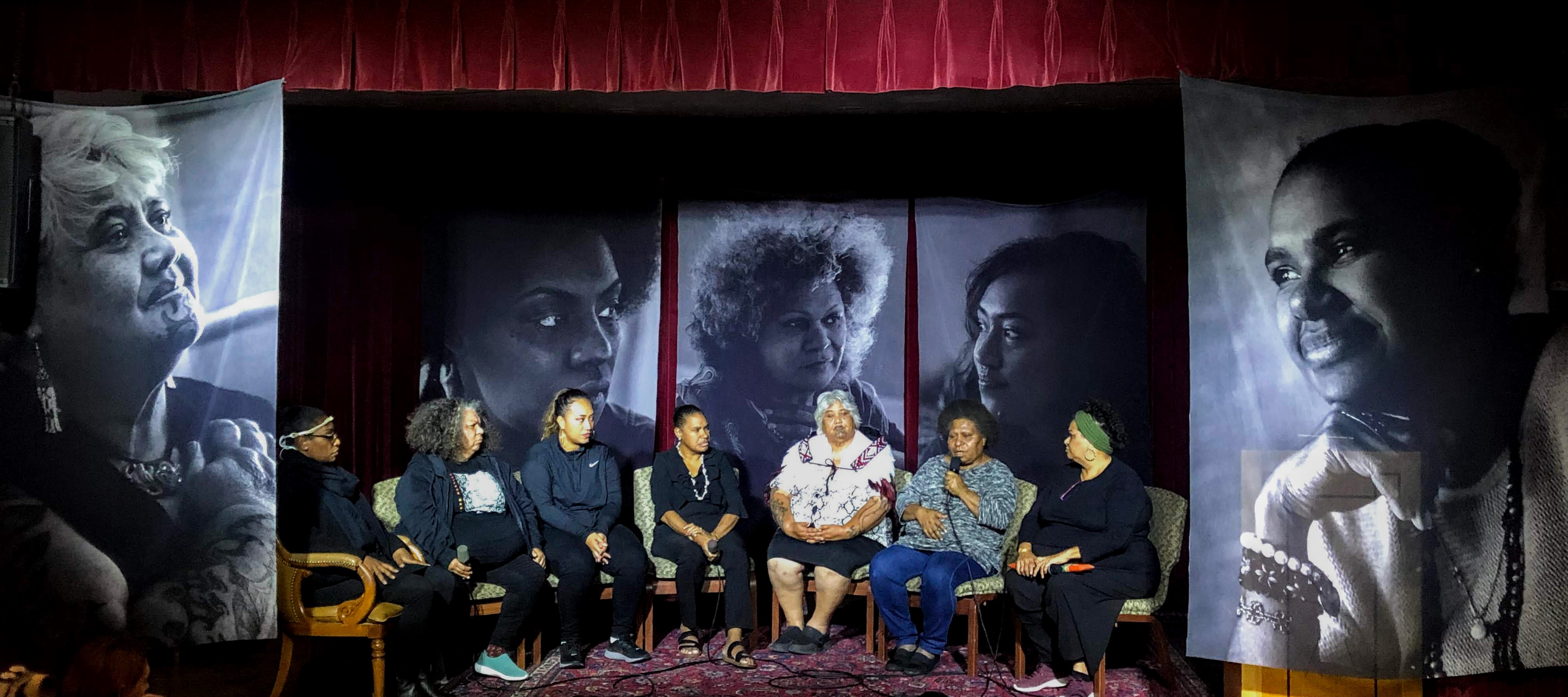
Breaking Silent Codes: Aboriginal and Torres Strait Island and Pacific First Nations women on stage at the New York City Bahá’í Center in Manhattan on Friday, 13 March, 2020, talking about ending domestic and sexual abuse of First Nations women. Image: Emma Davidson.
This week has been a non-stop stream of humanity doing its worst, much like this whole year. But if we want to become better, it is important we do not turn away from things that are hard to see.
That a mining company, Rio Tinto, can blow up a 46,000-year-old Puutu Kunti Kurrama and Pinikura sacred site with no legal repurcussions is shocking. That 22 per cent of the prison population in the Alexander Maconochie Centre are Indigenous, despite being 1.9 per cent of the ACT population. That Aboriginal and Torres Strait Islander women continue to experience far more violence than non-Indigenous women.
While all this is happening, we’re seeing news of police violence in protests from the Black Lives Matter movement in the US. The family of David Dungay Junior, who said, “I can’t breathe,” 12 times before he died in custody in Sydney in 2015, have expressed solidarity with the family of George Floyd, who died in Minneapolis on May 25 while being detained by police.
Reconciliation while these things are happening is not an easy conversation. But things that are important are rarely easy. If we are to become a community that truly values fairness, respect and diversity, we must understand our history and the ways in which people are still suffering today. Acknowledging the violence and how racism and discrimination contributes to it is needed if we want to change as a society.
This National Reconciliation Week, which included Reconciliation Day in the ACT on June 1, there are things we can do to understand Aboriginal and Torres Strait Islander culture and lived experience. This has to include listening to – and believing – Aboriginal and Torres Strait Islander people when they talk about violence and discrimination they have experienced.
In March 2020, I went to New York to support Aboriginal and Pacific First Nations women as part of their Breaking Silent Codes project. COVID-19 stopped them participating in United Nations events, but they were still able to meet with First Nations and ally groups from the US and around the world, talking about breaking the silence of shame and stigma around domestic and family violence and sexual abuse against First Nations women.
Now I’m seeing news footage of protests in the streets where I walked in March, helping the Breaking Silent Codes women find a stage to tell their stories.
Documentary film In My Blood it Runs tells the story of a young Aboriginal boy, Dujuan, who wants to see the age of criminal responsibility raised from 10 to 14. He went to the United Nations to tell the world that young kids should not be traumatised in prison. Having worked with Aboriginal women 10 years ago in some of the places shown in this film, it is painful to see these things are still happening.
Dr Tjanara Goreng Goreng, a Canberra author and academic, published a memoir in 2018 that describes how she overcame deep trauma and violence in her childhood, including abuse within the Catholic church. A Long Way From No Go tells the story of her journey to involvement in the Aboriginal rights movement in Canberra, and blowing the whistle to protect her people from the military being sent in to Aboriginal communities in the Northern Territory during the Intervention in 2007.
Aboriginal and Torres Strait Islander peoples have always been the custodians of the land and water in this country, and have a relationship with and knowledge of this country that is unique and sacred. We should be listening to their lived experiences, even when it is hard to hear.
Sovereignty was never ceded. Always was, always will be Aboriginal land.
Emma Davidson is convenor of the Women’s Electoral Lobby, Australia, and the ACT Greens candidate for Murrumbidgee in the ACT Legislative Assembly election in October. Dr Tjanara Goreng Goreng is an ACT Greens support candidate for Murrumbidgee.












